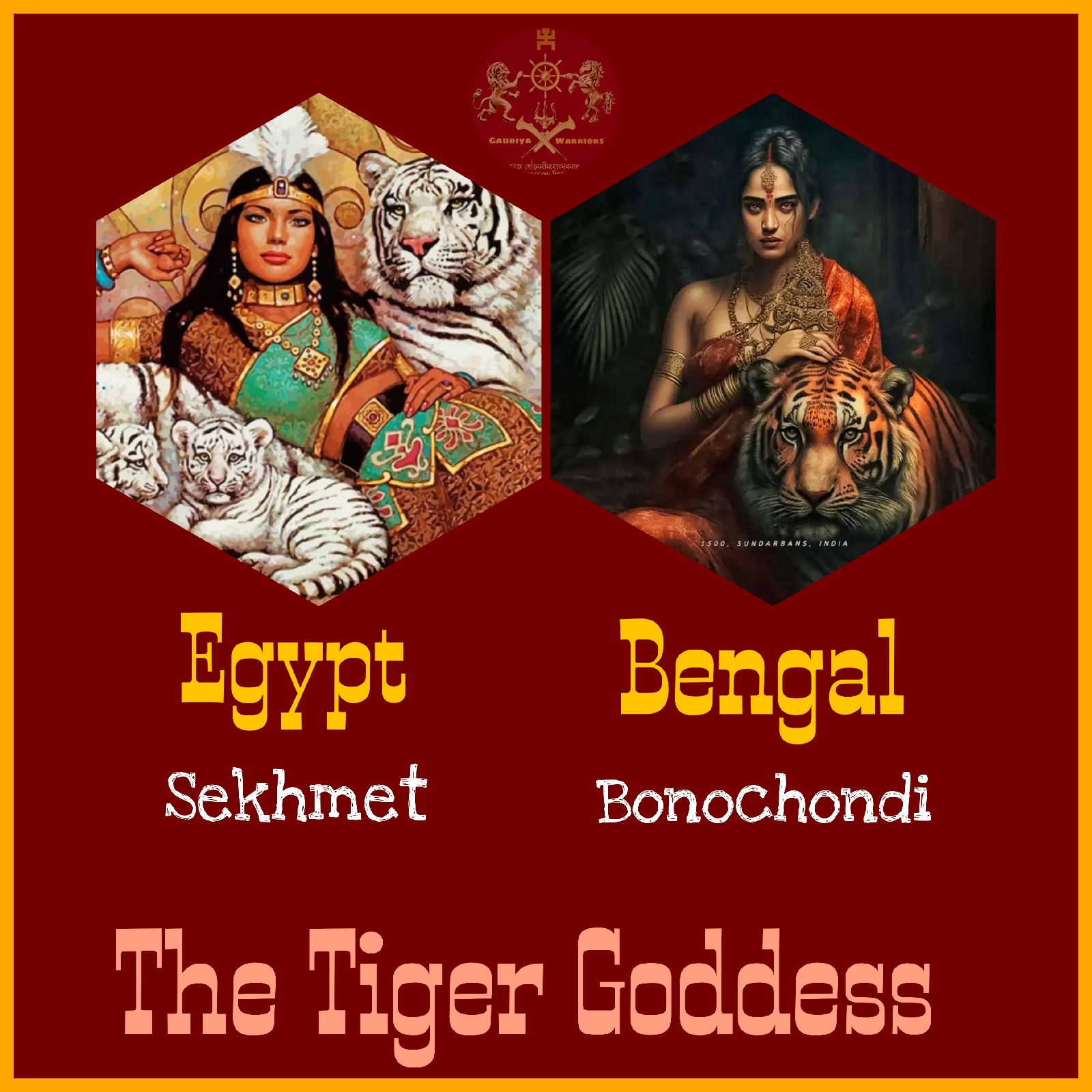Sekhmet & Chondi - Cultural Connection of Bengal & Egypt
Sekhmet (Ⲥⲁⲭⲙⲓ) was an ancient Egyptian war-goddess who was undoubtedly one of the most important goddesses in the Egyptian pantheon. As the deity of the ancient Egyptian pagan culture, he bears a remarkable resemblance to the deity of the Bengalis, Chō̂ndi.
The Coptic Egyptians described the goddess Sekhmet as 'Mutaitis Lydima' (Sekhmet - the Bloodthirsty). Debi Chō̂ndi is always called "Rudhirapriya" in the Shakta culture of Bengal. Sekhmet was mainly idolized as a legion of lions, but in the sycamore forest of the Sinai Peninsula (سينا, Ⲥⲓⲛⲁ) in northern Egypt, she was deified as a tiger goddess, protecting the forest's inhabitants from tiger attacks.
In Bengal Goddess Chō̂ndi is always worshiped riding a lion, but in the Sundarbans forest of the Gangetic Delta in South Bengal she is worshiped as the tiger goddess Bō̂nō̂chō̂ndi. She is worshiped to protect the forest dwellers from tiger attacks.
Due to the violent and demonic reputation of the goddess Sekhmet, she was worshiped as a war-goddess. The goddess Sekhmet was adopted by many Egyptian Pharaohs as a military patron, as she was believed to breathe fire against Egypt's enemies.
The pharaohs of Egypt used to depict the goddess Sekhmet on their victory flags during their war marches. During military campaigns, the hot desert air was considered the breath of Sekhmet, and after each battle, she was appeased by celebrating a victory festival in Sekhmet's honor.
The mighty Pharaoh Ramesses II proudly wore the image of Sekhmet as a symbol of military power. At Karnak during the Battle of Kadesh, Sekhmet is depicted riding the horse of Rameses, burning the corpses of their enemies in his fire.
In Bengal, image of Debi Chō̂ndi was depicted on the flag of Gaudeshwar Dharmapala. King Mahendra Singha's god Abhaya-Chandi provided strength in the war against foreign invasions. Bangaladheeshwar Emperor DanujmardandmDeva is mentioned in his coin as 'Sri SriChandiCharanaParayana' on his coins.










Comments
Post a Comment